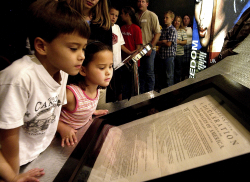On Tuesday, June 16, 2025, the House of Commons, the lower house in British Parliament, passed a near-birth abortion law. On Friday, June 20, 2025, they passed a bill in support of assisted-suicide, the day after Corpus Christi.
NPR reports the near-birth abortion law thus:
In a landslide vote late Tuesday, lawmakers in the lower house of British parliament, the House of Commons, endorsed new legislation that bars women in England and Wales from ever being investigated, arrested, prosecuted or imprisoned for terminating their own pregnancies—no matter what term or trimester they’re in. The vote was 379 to 137 . . .
One of the most famous cases of women who’ve been prosecuted is that of Nicola Parker, who delivered a stillborn baby at home, at the height of the COVID-19 pandemic, after taking abortion medicine prescribed by a doctor over the phone when she was about 26 weeks pregnant. At trial, she told jurors she thought she was only six weeks along. She was arrested, jailed—and ultimately acquitted last month.
“The new [law] is about recognizing that these women need care and support, and not criminalization,” the author of an amendment to the new law, MP Tonia Antoniazzi, told Parliament, calling the old law “outdated” and “Victorian.”
Others say the new law doesn’t go far enough.
Furthermore, a war erupted just over a week ago, on June 13, 2025 (Feast of St. Anthony of Padua and of an apparition of Our Lady of Fatima, when Our Lady asked us to pray the “O my Jesus prayer…”), when Israel launched intercontinental missiles 1500 km away, targeting sites in Tehran, Iran, and Iran responded the following day.
I find it deeply ironic that as the specter of war rises, abortion laws of this nature are being intensified. This brings to mind St. Mother Teresa of Calcutta, who nearly half a century ago, upon receiving her Nobel Peace Prize on October 17, 1979, made a poignant connection between abortion and war, asserting that as long as there is abortion, there is war.
What the British government has done is extend the boundaries within which one can terminate a child in the womb. What used to be six months is now near birth. This sets a dangerous precedent, hinting that soon, arbitrary definitions may emerge, allowing for the kind of infanticide that Peter Singer controversially suggested in his book Practical Ethics, first published in 1979. What comes next? What other arbitrary justifications will society create to sanction the taking of life? In such a context, can anyone truly feel safe?
These developments lead us to grapple with the boundaries that define life and death. What does it mean to be human? The intertwining of issues concerning abortion, assisted suicide, and the implications of conflict highlights a troubling paradox in our societal values.
As Mother Teresa’s words resonate, we must engage in open and compassionate dialogue about these complex issues. The definitions of life must be approached with care, empathy, and a steadfast commitment to upholding the dignity of every human person. In such a context we are invited to consider these essential questions, urging a deeper exploration of our collective values and ethics in a world where the sanctity of life seems increasingly precarious.
Abortion, Euthanasia, and the Fruits of Gnostic Humanism
Catholic teaching on abortion emphasizes that life is a gift from God, deserving of protection and reverence. The Church articulates that every human being, created naturally in the image of God, potentially growing in His likeness by grace, and potentially seeing and participating in His glory in Heaven, possesses inherent dignity. Abortion not only undermines this dignity but also reflects a societal mindset that devalues life, reducing it to a matter of convenience or choice of an apparent good. The connection between the sanctity of life celebrated in the Eucharist and the Church’s stance on abortion lies in the understanding that both stem from a recognition of God’s presence in each person.
What Ficino, Pico della Mirandola, and other fifteenth-century humanists did is now coming to fruition. Separating man from God, philosophy from theology, and every other separation to follow, we find a fractured, confused humanity that does not know where its from and where its going, like a character madly in search of its author, as Pirandello would wisely express our current existentialist crisis.
Mother Teresa of Calcutta, Abortion, War, and a Culture of Life
St. Mother Teresa’s assertion that “as long as there is abortion, there is war” draws a poignant parallel between the two issues. Both are manifestations of a culture that fails to honor life. Abortion represents a denial of the fundamental right to life, while war often results from a disregard for the dignity of the human person. The mindset cultivated by a society that accepts abortion may indeed foster an environment where violence, conflict, and dehumanization thrive, as is increasingly evident in our society. When the sanctity of life is compromised, it can lead to a broader acceptance of violence and destruction, whether through war or through the termination of innocent lives. If I can kill in the womb, what is to stop me from killing outside the womb?
Evidence of this relationship can be observed in the increasing acceptance of violence in various forms, from domestic abuse to armed conflict, often justified by a failure to recognize the inherent worth of every individual person (such as in the case of the Nigerian state of Benue last month). The culture of death perpetuated by abortion can desensitize individuals to the value of life, creating a societal norm where conflict becomes an acceptable means of addressing disagreements or achieving goals.
All of this, however, precipitously comes to a point that is intolerable, as we are now witnessing. As St. Augustine wrote at the beginning of the City of God, “In fine motus velocior.” In the end, everything accelerates indeed, and this acceleration is what brings the avalanche to crash even more forcefully and to bring a halt to the craziness a society without God entails.
Our Response of Hope and Action
In responding to the rising tide of pro-abortion and pro-assisted suicide laws, as well as the ongoing wars, it is essential to cultivate hope, resilience, and resistance. We must remember that our Faith calls us to be agents of love and compassion in a world that often seems hostile to life.
This Jubilee Year provides a unique opportunity for renewal and grace. We are invited to deepen our commitment to the sanctity of life through prayer, advocacy, and acts of charity. Spiritual practices such as Eucharistic Adoration can help us draw strength from Christ’s presence, reminding us of the power of love and sacrifice. Engaging in community service, supporting pregnancy care centers, and participating in peaceful protests can also be ways to affirm life and stand against the culture of death.
As we navigate these challenges, we must remember that hope is not passive; it requires action and a willingness to engage with the world around us. By fostering a culture of life through our words and deeds, we can counter the narratives that promote despair and violence.
Our Faith calls us to be beacons of light, embodying the love of Christ in every interaction and advocating for the dignity of every human being. In doing so, we can remain steadfast, knowing that God is with us in our efforts to build a more just and compassionate world.
Photo by Scott Rodgerson on Unsplash

















